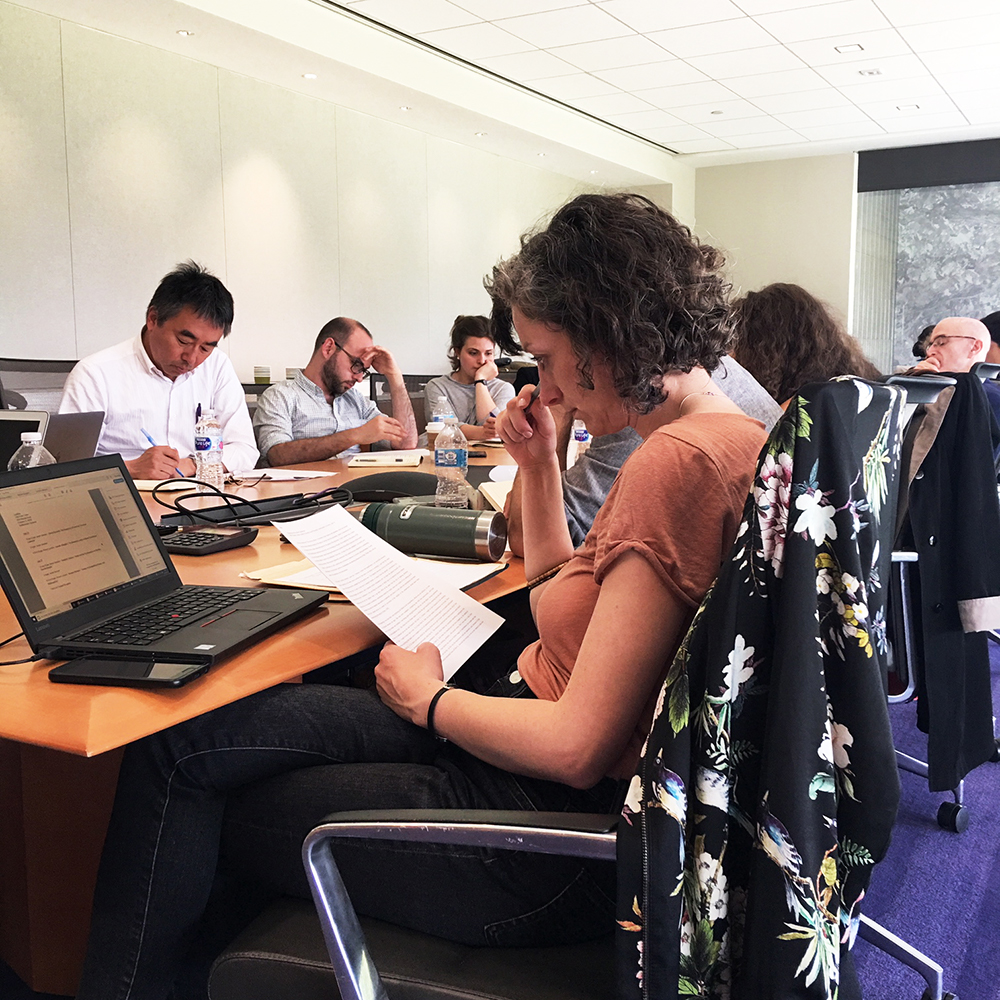Where psychoanalysis and philosophy meet

Summer Institute of Psychoanalysis Workshop 2019
Global collection of students and scholars gather at Northwestern University to discuss the impact of psychoanalytic thought on culture
In the marketplace of ideas, one in which the concept of one’s “personal brand” has become all too commonplace, debate swirls regarding the contemporary relevance of psychoanalysis.
As a way of thinking, some scholars contend, psychoanalysis looks decidedly out of step with the times, posing difficult problems for those who wish to brand or rebrand its ideas.
“Yet it could be that this esoteric, unpopular condition is precisely what gives its proponents the freedom necessary for radical critical thought,” said Alessia Ricciardi, Professor of Italian and Comparative Literature at Northwestern University.
Inspired by that notion, Northwestern hosted the second annual Summer Institute of Psychoanalysis workshop in Evanston June 24-27, 2019. Built on the success of the inaugural Summer Institute at Paris’ Université Sorbonne Nouvelle in June 2018, the event’s 2019 edition addressed the impact of psychoanalytic discourse on society and culture.
“Psychoanalysis represents what the celebrated Italian philosopher Giorgio Agamben would call ‘a means without end,’ which is to say a beautiful space of reflection for the discovery and creation of human meaning,” said Ricciardi, who led the conference with Isabelle Alfandary, Professor of American Literature at the Université Sorbonne Nouvelle and President of the Collège international de philosophie.
Blending psychoanalysis and philosophy
Specifically, the three-day Summer Institute explored “big questions” from both a psychoanalytic and philosophical standpoint. Through workshops, keynote lectures, and opportunities for active exchanges, 20 students and scholars from four continents addressed questions such as: How should we live? And how do we define truth, illusion, and belief in terms that are meaningful today?
Psychoanalysis and philosophy, both of which have been considered as running the risk of becoming increasingly untenable fields of study, are modes of reflection that can offer a robust platform for critical thinking and political defiance.
“Psychoanalysis remains a source of critical responses to the most far-reaching and elusive questions regarding our motives and actions,” Ricciardi said.
Ariel Weiner, a third-year Northwestern PhD student in Comparative Literary Studies and German, attended the Summer Institute given her ongoing work in 20th century German Jewish thought at the intersection of religion and media, of which psychoanalysis is a common theoretical reference point. Beyond the opportunity to engage with a diverse group of international scholars who shared an interest in psychoanalysis, Weiner appreciated the affirmation of psychoanalytic theory’s sustained importance within various humanities disciplines.
“As someone who works in an interdisciplinary field of research, I would say that an important take-away from this experience was seeing the various ways of bringing two distinct but adjacent discourses – in this case, philosophy and psychoanalysis – into productive conversation,” said Weiner, who also attend last year’s inaugural Summer Institute in Paris.
Continued exploration
Ricciardi and Alfandary’s longtime collaboration was one of several academic connections between Northwestern and Université Sorbonne Nouvelle that sparked the signing of an official agreement, which includes an undergraduate exchange, a dual PhD program, and a customized undergraduate study abroad program.
In this spirit, the two scholars continue to seek new opportunities to showcase the relevance and value of psychoanalytic thought in today’s world.
In fact, spurred by the Summer Institute’s energetic discussions and the positive feedback of participants, whom Ricciardi said brought a shared sense of purpose and “intensity of critical attention to the cultural and political ruses” of the current world, Ricciardi and Alfandary have agreed to co-teach a graduate seminar titled “The Politics of Seduction” at Northwestern next spring and have also begun plotting next year’s Summer Institute.
“In light of the enthusiastic responses of our participants, we’re already planning next year in Paris,” Ricciardi confirmed.